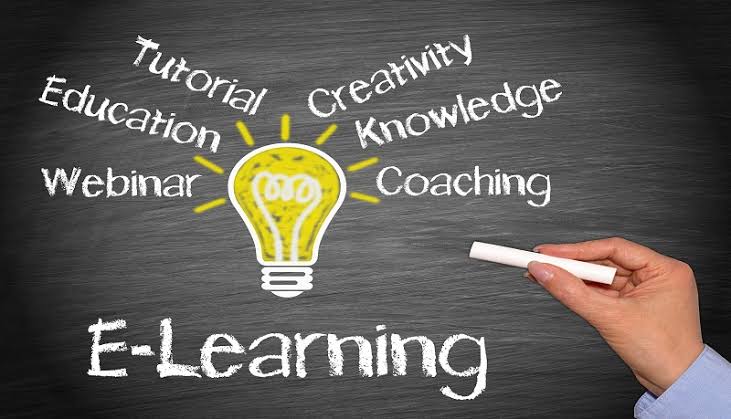E-learning or electronic learning has revolutionized education systems globally. Nigeria is no exception. With vast potential to democratize education e-learning presents numerous opportunities to overcome some challenges faced by Nigerian education sector. From addressing geographical barriers it provides flexible learning schedules. E-learning has potential to significantly enhance quality and accessibility of education in Nigeria.
Addressing Geographical Barriers
Nigeria with its expansive and diverse landscape, faces significant geographical challenges in delivering education uniformly across country. Many rural and remote areas lack adequate educational infrastructure. This results in disparities in educational access and quality. E-learning provides solution by enabling students in these areas to access educational resources and instruction online. With internet connectivity and digital devices. Students can participate in virtual classrooms and access learning materials. They can interact with educators regardless of their physical location. This approach helps bridge gap between urban and rural education ensuring all students have equal opportunity to learn and succeed.
Enhancing Flexibility and Accessibility
One of primary advantages of e-learning is its flexibility. Allowing students to learn at their own pace and on their own schedule. This is particularly beneficial in Nigeria where many students balance education with other responsibilities. Such as work or family duties. E-learning platforms offer asynchronous learning opportunities. Students can access recorded lectures complete assignments and engage in discussions at times convenient for them. This flexibility makes education more accessible to wider range of learners. Including those who may have dropped out of traditional school system or adults seeking to further their education.
Improving Quality of Education
E-learning has the potential to enhance the quality of education by providing access to a wealth of digital resources and innovative teaching methods. Online platforms can host a variety of multimedia content, such as videos, interactive simulations, and quizzes, which can make learning more engaging and effective. Additionally, e-learning enables educators to incorporate diverse instructional strategies, such as gamification and personalized learning paths, catering to different learning styles and needs. By leveraging technology, educators can also track students’ progress more efficiently, providing timely feedback and support to ensure that learners are meeting their educational goals.
Expanding Professional Development for Educators
E-learning is not only beneficial for students but also for educators. Continuous professional development is essential for teachers to stay updated with the latest teaching methodologies and subject knowledge. E-learning platforms offer a convenient and cost-effective way for educators to participate in training programs, webinars, and online courses. This ongoing professional development helps teachers enhance their skills, adopt new teaching strategies, and improve their overall effectiveness in the classroom. As a result, students benefit from a higher quality of instruction, which can lead to better educational outcomes.
Cost-Effectiveness and Resource Optimization
The traditional education system in Nigeria often faces challenges related to funding and resource allocation. Building and maintaining physical infrastructure, such as schools and classrooms, can be costly and time-consuming. E-learning offers a more cost-effective alternative by reducing the need for physical facilities and printed materials. Digital resources can be easily updated and distributed, ensuring that students always have access to the most current information. Moreover, e-learning can help optimize educational resources by allowing multiple students to access the same materials simultaneously, reducing the need for duplicate resources.
Promoting Lifelong Learning
E-learning fosters a culture of lifelong learning by providing individuals with the tools and opportunities to continue their education beyond the traditional classroom setting. In Nigeria, where the job market is constantly evolving, lifelong learning is crucial for staying competitive and adapting to new industries and technologies. E-learning platforms offer a wide range of courses and certifications that individuals can pursue to enhance their skills, switch careers, or simply expand their knowledge. This emphasis on continuous education helps create a more adaptable and skilled workforce, contributing to the overall development of the country.
Encouraging Digital Literacy
In today’s digital age, digital literacy is a critical skill for success in both education and the workforce. E-learning exposes students to various digital tools and platforms, helping them develop essential skills such as online research, digital communication, and information management. By integrating technology into the learning process, e-learning prepares students for the demands of the modern job market and everyday life. In Nigeria, where there is a growing emphasis on digital innovation and entrepreneurship, fostering digital literacy from an early age is particularly important.
Challenges and Considerations
While e-learning offers numerous benefits, it is important to acknowledge the challenges and considerations associated with its implementation in Nigeria. Internet connectivity and access to digital devices remain significant barriers for many students, particularly in rural areas. Addressing these challenges requires investment in infrastructure and initiatives to provide affordable and reliable internet access. Additionally, there is a need for effective training programs to help educators transition to e-learning and leverage technology in their teaching.
Conclusion
E-learning has the potential to transform education in Nigeria by making it more accessible, flexible, and effective. By addressing geographical barriers, enhancing the quality of education, and promoting lifelong learning, e-learning can help bridge the educational divide and empower students across the country. However, to fully realize the benefits of e-learning, it is essential to address the challenges of connectivity and digital literacy, ensuring that all students and educators can participate in and benefit from this educational revolution. With the right investments and policies, e-learning can play a pivotal role in shaping the future of education in Nigeria.
